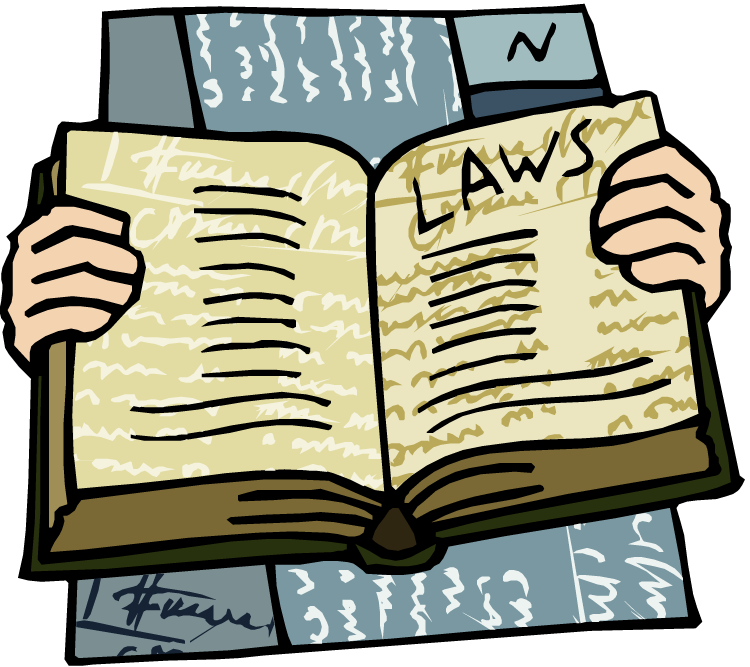Deuteronomy 28:1, Commandments.
Most people with whom I have engaged in discussion about the Torah-law of Elohim have a limited understanding of the breadth, scope and purpose of Elohim’s law. If they understand the full ramifications of the Torah, they would likely be less inclined to dismiss its validity in their lives. When discussing the Torah with people who have a traditional Christian view of “the law,” it might be helpful to keep the following truths in mind; they help to “blow the lid” off of people’s theological boxes!
(This is excerpted from a larger work by Ya’acov Natan Lawrence entitled, YHVH’s Instructions In Righteousness—A Messianic Believer’s Introduction to the Torah available online at http://www.hoshanarabbah.org/pdfs/torahprimer.pdf)
The purpose of the Torah is to show man how to walk in right relationship (or righteousness) with his Creator. To do this, we must love YHVH with all our heart, soul, mind and strength (Deut 6:5; Mark 12:30) and love our neighbor as ourself (Lev 19:18; Mark 12:30). Once one is saved by grace through faith (See my teaching article entitled: The Abrahamic Covenant: The Covenant of Salvation, available at http://www.hoshanarabbah.org/pdfs/abracov.pdf.), Torah helps show man how to walk in the straight and narrow path that leads to blessings and life and avoids the curses of the law (Deut 30:15; 32:47). The Torah shows man how to avoid sin (which is the violation of YHVH’s Torah-commandments, 1 John 3:4), which is walking contrary to YHVH’s instructions in righteousness that are for our blessing and benefit.
The Torah does not set an impossible standard by which to live. We must ask ourselves, would a righteous and just Creator and a loving Heavenly Father give to his chosen people and children a set of standards that were humanly impossible to perform, and then curse them for their inability to meet these standards? Of course not! Rather, the Torah (including both the Abrahamic and Mosaic Covenants) sets a standard of faith, trusting in Elohim, and of following its system of repentance and sacrifice for obtaining forgiveness from Elohim and restoring a condition of being considered righteous in his sight. After all, Moses, the human instrument through whom YHVH revealed the Torah to the Children of Israel, states in Deuteronomy 30:11–14:
For this [Torah] commandment which I command you this day, it is not hidden from you, neither is it far off. It is not in heaven, that you should say, “Who shall go up for us to heaven, and bring it unto us, that we may hear it, and do it?” Neither is it beyond the sea, that you should say, “Who shall go over the sea for us, and bring it unto us, that we may hear it, and do it?” But the word is very near unto you, in your mouth, and in your heart, that you may do it.
Paul quotes this very passage in Romans 10:6–8 where he relates the written Torah to Yeshua, the Living Torah or Word of Elohim incarnate (in the flesh, see John 1:1, 14). He shows that they are one in the same and that Messiah Yeshua came to live and reveal to us the righteousness of the Torah-law (verse 4) that is available to us if we will but have a heartfelt faith in him (verses 4, 9–10) and allow him to live out his righteousness in us through the empowering work of the Spirit of Elohim. In verses 11 through 21, Paul goes on to relate this very truth to being the central message of the gospel that Isaiah prophesied (Isa 52:7) would be preached to redeem both houses of Israel to Yeshua their Messiah.
It might be said that in a sense that the Torah itself is neutral; neither positive nor negative, for it is like a mirror simply reflecting the image portrayed in it. Torah reacts according to human action. Those who obey it are blessed and those who disobey it are cursed. David Stern in his Jewish New Testament Commentary lists both some of the “negative” and some of the positive functions of the Torah. On the “negative” side:
1) The Torah has the capacity to stir up sin in an individual. This capacity of the Torah to make us sin is not a fault in the Torah but a fault in ourselves. A healthy person thrives in an environment deadly to someone who is ill; likewise, the Torah, beneficial to a believer living by faith, is an instrument of death to these controlled by their sinful nature (p. 375).
2) The Torah can still produce guilt feelings in a believer—as it rightly should whenever he contemplates how his behavior falls short of the standard Elohim sets in the Torah. But these feelings are not irremediable. The remedy is once-and-for-all trust in Yeshua the Messiah’s final atonement for sin (Rom 3:21–26), followed by ongoing confession of and repentance from sins (1 John 1:9) (Ibid.).
3) The Torah also provides a framework of justice by which Elohim, the Just Judge of the universe, will judge the actions of men to determine both their level of punishment for its violation and their level of reward for obedience to it.
4) Because of the righteous standards the Torah sets out, for the sinner it points out the fact that they have sinned and how far they have fallen short of the glory of YHVH (Rom 3:23) and hence their need for a Savior or Redeemer. The Torah actually points the way to Yeshua as Paul points out in the book of Galatians (3:25).
On the positive side:
1) The Torah provides a framework of grace in which one can live. As David Stern points out, YHVH’s people are to live “within the framework of” Torah, but they are not to be “in subjection to” [or under] the Torah in a legalistic fashion. YHVH’s giving of the Torah was in itself an act of grace that the New Covenant (NT) compares with his sending Yeshua (John 1:17) (Ibid., p. 374). Ariel Berkowitz, in his book, Torah Rediscovered, states it this way, “[Torah] function[s] as a protective border for the people of [Elohim].” He goes on to show that there are two opposing spiritual realities in the universe: the kingdom of light (YHVH’s kingdom) and the kingdom of darkness (Satan’s kingdom). Torah acts as a protective border to keep those wanting to abide in the kingdom of light/life/blessing/relationship with YHVH safe and secure. The Torah tells us what is truth as opposed to error, light as opposed to darkness, clean as opposed to unclean, holy (kadosh or set-apart) as opposed to profane or polluted, life as opposed to death (pp. 26–27).
2) The Torah, as understood and applied through the Spirit, thereby gives life in union with Messiah (Stern, p. 381).
3) Obeying the Torah brings us eternal rewards (not eternal life, which is by grace through faith alone, see Eph 2:8) in the world to come (Matt 5:19).
4) Obeying the Torah helps deepen a loving and intimate relationship with YHVH-Yeshua and helps us to abide in Yeshua (John 14:15; 1 John 2:3–6).
5) Obeying the Torah helps us to stay spiritually pure (1 John 3:3–6).
6) Obeying the Torah protects us from the influence of the devil (1 John 3:8).
7) Obeying the Torah-Word of YHVH helps to perfect YHVH-Yeshua’s love in us (1 John 3:6).






